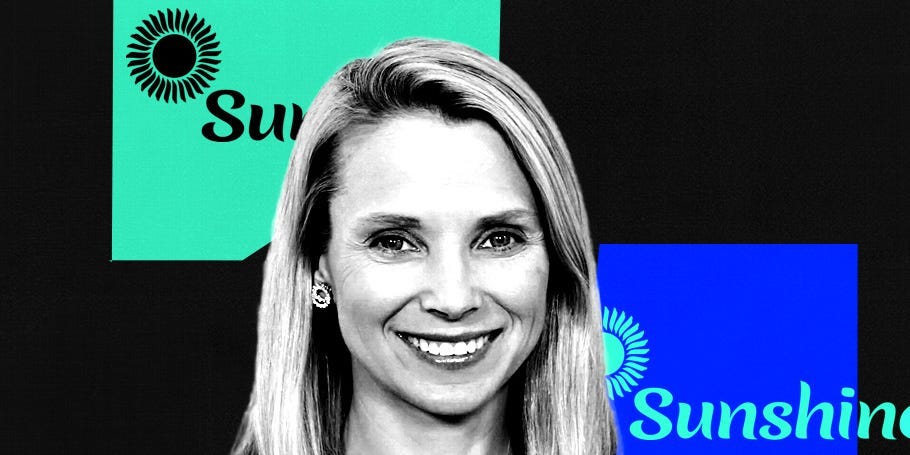Marissa Mayer needs no introduction.
She was the first female engineer at Google and the CEO of Yahoo from 2012 to 2017.
Now, as cofounder of the contact-manager startup Sunshine, she wants to build software that deepens the human connection.
Launched in 2020, Sunshine is creating a portfolio of products that are “at the intersection of contacts, groups, events, celebrations,” she told Business Insider. Think an old-school address book, digitized and optimized for younger generations.
Mayer said she’s looking forward to reaching even more users by helping people with everyday problems with their contacts — which could include getting rid of duplicate address-book entries, updating contacts with the newest information, and remembering birthdays.
Mayer’s insights are part of Business Insider’s year-end leadership series “Looking Ahead 2024,” which digs into some of corporate America’s vision, strategies, and challenges in the coming year.
The following conversation has been edited for length and clarity.
What are you most excited about for 2024?
I’m excited to see where the AI wave goes.
I’m also excited for Sunshine. We’re going to have a set of new products in the market. I’m excited to see how users respond to those and how the company grows and changes.
I’m looking forward to 2024 — 12 is my lucky number, so 24 is kind of close.
What are you most concerned about for 2024?
AI, its development, and whether or not it is hindered by regulation. Those types of things are really where I have concerns.
Obviously, I think we’re all hoping that the economy has a good year and starts to straighten out.
It feels like things are starting to get on the right track. But no one has the crystal ball.
What’s one thing you got right in 2023?
Ever since I learned about artificial intelligence — since my freshman year of college — I’ve just been hugely fascinated by it. I’ve been betting that it would be huge when we got it right.
I was going to be a doctor, but I changed my major to computer science. I chose artificial intelligence as my undergraduate concentration and my graduate specialty. I feel I’ve been a lifelong student of AI and, really, a follower of AI.
So to see AI really have its moment in 2023 — I feel like my lifelong conviction that this was going to be something that ends up changing everything has started to come into focus.
What’s one thing you got wrong in 2023?
My undergraduate major, when I changed it, was something called symbolic systems. It’s cognitive psychology: How do people learn? Philosophy: How do people reason? Linguistics: How do people express themselves? And computer science: Can you build a computer that does the same, but learns, reason, and expresses itself?
If you look at the field of AI, for years all the focus was on learning models and reasoning. Being able to extrapolate from what you learn from that data and from what those models do — to be able to reason in uncertain and unknown spaces.
And I think it was a surprise for me, and for a lot of people, that with generative AI, it was really the expression that moves the whole field so far forward — the ability to express itself in language, the ability to express itself in pictures.
It turns out you can have all the intelligence. You can learn and reason. But to capture people’s imagination, that level of expressiveness needed to be there.
Back when I picked my major, I knew I was interested in cognitive psychology. I knew I was interested in computer science. I knew I was interested in philosophy.
I was kind of on the fence about linguistics. And the fact that that was the area that really moved AI the furthest forward was a surprise to me.
Read the full article here





